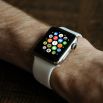Researchers were able to successfully restore a blind mice vision using stem cell therapy. They said that one of the challenges in developing stem cell therapies was ensuring that the transplanted can survive long enough to work. The researchers reported by transplanting photoreceptors derived from human stem cells and blocking the immune response that causes transplanted cells to be rejected. They were able to restore a blind mice vision.
Their research is supporting a path of improvement towards clinical test on restoring human vision lost on degenerative eye diseases. Stem cell therapy holds great promise on restoring degenerative conditions. But one of the challenge is on how the transplanted cell will survive long enough to make long term efficiencies.
Buck faculty and senior author Deepak Lamba, PhD, MBBS, said that this has turned into a nice story of long-term restoration of vision in completely blind mice. They show that the mice can now perceive light as far out as 9-months following injection of these cells. Photoreceptors are specialized neurons in the retina that convert light into signals that the brain interprets as sight.
The loss of this certain cell causes degenerative eye diseases. Human embryonic stem cells can provide a potential source for photoreceptor replacement, this is what they used on the mice. A major controversy of this field is when Lamba's prior work, the cells do not survive long enough to sustain long term effectivity.
According to the Science Daily, after seeing significantly improved long-term survival and integration of the transplanted cells. The next step was to confirm if the cell was working. The team transplanted CRX null a stem cell-derived photoreceptors into another mouse which was congenitally blind.
And after observing the mouse's responds to light and the brain activity. The signals from the eyes was going to the right area in the brain. In addition to this they have found that even after nine months and even one year after the photoreceptor transplantation the eyes were responding to light and was submitting sight signals to the brain.
This findings gives a lot of hope that there could be a cure for blindness in humans too. According to the BBC, scientist were able to find cures blindness of mice. The stem cells used to cure the blind mice vission may also be used to treat humans.









